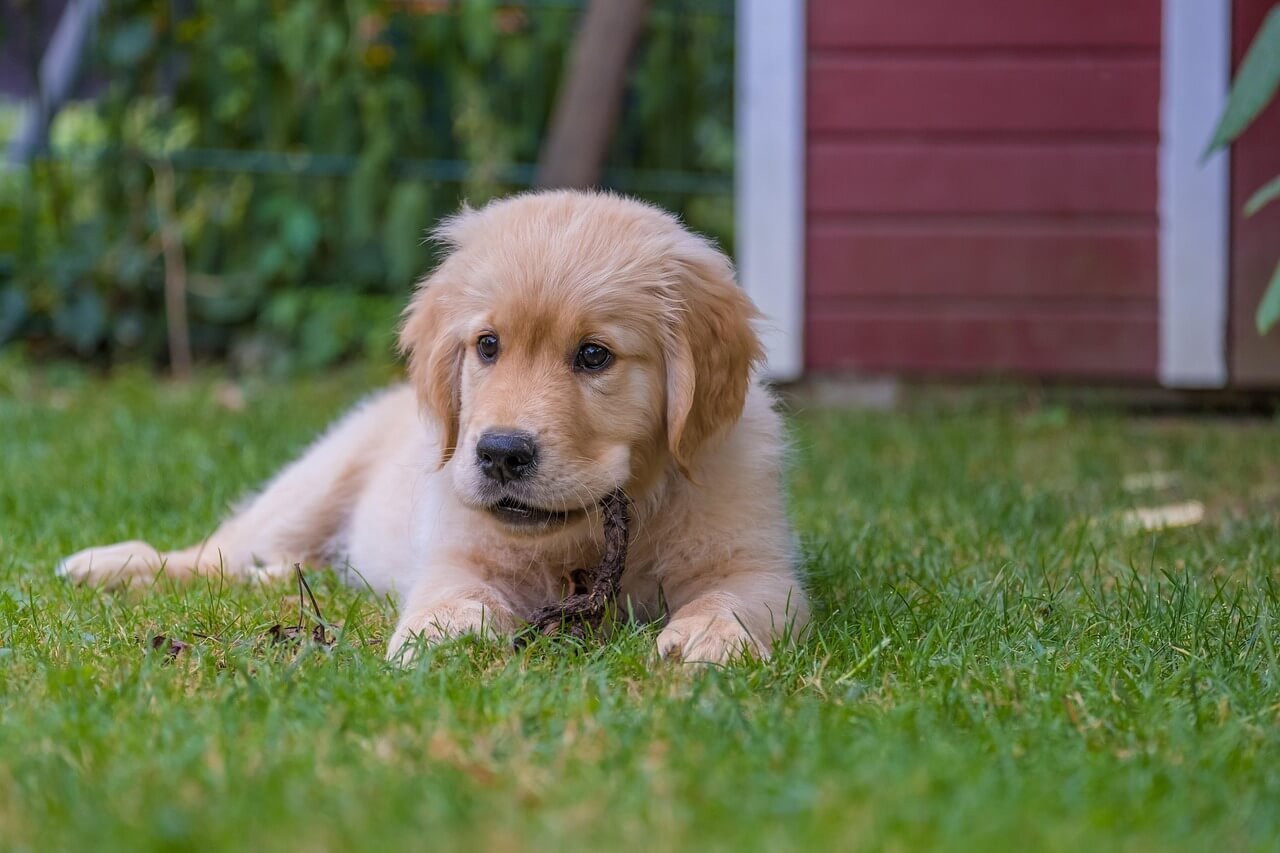Understanding a Dogs Dislocated Hip: What Every Pet Owner Should Know
As a devoted pet owner, seeing your furry friend in pain can be heart-wrenching. One of the more common yet serious injuries that dogs may experience is a dislocated hip. Also known as hip luxation, this condition occurs when the ball-and-socket joint of the hip becomes displaced, causing immense discomfort and mobility issues for your canine companion. Whether you’re dealing with an active pup or a senior dog, understanding the causes, symptoms, and treatment options for a dislocated hip is crucial. In this blog post, we’ll explore everything you need to know about this condition, empowering you to act quickly and compassionately if your dog ever faces this challenge.
Recognizing the Signs of a Dislocated Hip in Dogs
If you suspect your dog has suffered a dislocated hip, it’s important to identify the signs early. Early detection can make a significant difference in recovery time and long-term outcomes. Below are some key indicators that your dog might be dealing with a dislocated hip:
Limping or Favoring One Leg:
Your dog may avoid putting weight on the affected leg, leading to an obvious limp.Swelling Around the Hip Area:
Look for any visible swelling or puffiness near the hip joint, which could indicate trauma.Pain or Vocalization When Touched:
Your dog might yelp, whine, or show signs of distress when the hip area is touched.Difficulty Standing or Walking:
A dog with a dislocated hip may struggle to stand up or walk normally.Reduced Activity Levels:
If your usually energetic pup suddenly seems lethargic, it could be due to hip pain.
Spotting these symptoms early can help you seek veterinary care promptly. Remember, only a professional can diagnose a dislocated hip, so don’t delay in consulting your vet if you notice any of these signs.
Common Causes of Hip Dislocation in Dogs
A dislocated hip can happen to dogs of all ages and breeds, but certain factors increase the risk. Understanding the potential causes can help you take preventive measures to protect your pet. Here’s a breakdown of the most common reasons behind hip dislocations:
Trauma or Injury:
Accidents such as falls, car collisions, or rough play can lead to hip dislocations.Congenital Conditions:
Some dogs are born with structural abnormalities in their hips, making them more prone to dislocations.Degenerative Joint Disease:
Older dogs with arthritis or other joint issues may experience hip instability over time.Overexertion or High-Impact Activities:
Dogs involved in activities like agility training or frequent jumping may strain their joints.Obesity:
Excess weight places additional stress on a dog’s joints, increasing the likelihood of dislocation.
By recognizing these risk factors, you can take steps to minimize the chances of your dog suffering a dislocated hip. Prevention is always better than cure, especially when it comes to your pet’s health.
Check this guide 👉Top 4 Best Dog Hip Braces for Ultimate Joint Support!
Check this guide 👉Understanding a Dogs Dislocated Shoulder: Best 7 Expert Tips
Check this guide 👉Top 3 Best Dog Knee Braces for Ultimate Joint Support!

Preventive Measures | Treatment Options |
|---|---|
Maintain a healthy weight for your dog | Veterinary examination and diagnosis |
Avoid high-impact activities | Manual reduction of the hip joint |
Provide joint supplements | Pain management with medications |
Regular vet check-ups | Surgery for severe cases |
Create a safe environment at home | Physical therapy and rehabilitation |
How to Care for Your Dog After a Hip Dislocation Diagnosis
Once your dog has been diagnosed with a dislocated hip, proper aftercare is essential for a smooth recovery. Follow these guidelines to support your furry friend during this challenging time:
Follow Your Vet’s Instructions Carefully:
Adhere to all prescribed treatments, medications, and activity restrictions.Limit Physical Activity:
Restrict running, jumping, and playing until your vet gives the green light.Provide a Comfortable Resting Area:
Ensure your dog has a soft, supportive bed to rest and recover.Monitor for Complications:
Keep an eye out for signs of infection, worsening pain, or abnormal behavior.Encourage Gentle Movement:
Once approved by your vet, introduce short, controlled walks to aid rehabilitation.
Proper aftercare not only speeds up recovery but also minimizes the risk of re-injury. Always consult your veterinarian before making any changes to your dog’s routine.
Tips for Preventing Future Hip Dislocations
While accidents can’t always be avoided, there are several proactive steps you can take to reduce the risk of future hip dislocations in your dog:
Maintain a Healthy Diet:
Feed your dog a balanced diet to support joint health and overall well-being.Exercise Moderation:
Avoid overexertion and opt for low-impact exercises like swimming or leash walks.Use Protective Gear:
Consider using harnesses or braces designed to support your dog’s joints.Regular Vet Visits:
Schedule routine check-ups to catch any underlying issues early.Create a Safe Environment:
Remove hazards at home that could cause slips, trips, or falls.
Taking these precautions can significantly lower the chances of your dog experiencing another hip dislocation. Prevention is key to keeping your pup happy and healthy.
Understanding the Emotional Impact on Pet Owners
Dealing with a dog’s dislocated hip isn’t just physically challenging for your pet—it can also take an emotional toll on you as a pet owner. The stress of seeing your furry companion in pain, coupled with the financial and time commitments of treatment, can feel overwhelming. Here are some ways to manage the emotional impact while supporting your dog:
Practice Self-Care:
Take time to rest and recharge so you can stay strong for your dog.Seek Support from Fellow Pet Owners:
Join online forums or local groups where others share similar experiences.Stay Positive and Focused:
Remind yourself that recovery is possible with patience and proper care.Educate Yourself About the Condition:
Knowledge reduces anxiety and helps you make informed decisions.Celebrate Small Wins:
Acknowledge milestones in your dog’s recovery to stay motivated.
Remember, your emotional well-being is just as important as your dog’s physical health. By taking care of yourself, you’ll be better equipped to support your pup through their healing journey.
Exploring Alternative Therapies for Recovery
In addition to traditional veterinary treatments, alternative therapies can complement your dog’s recovery plan. These methods focus on holistic healing and may improve mobility, reduce pain, and enhance overall well-being. While not a replacement for professional medical care, they can be valuable additions to your dog’s rehabilitation process:
Physical Therapy Exercises:
Gentle stretches and exercises can strengthen the muscles around the hip joint.Hydrotherapy:
Swimming or water-based activities provide low-impact exercise for joint recovery.Massage Therapy:
Professional massage can relieve muscle tension and improve circulation.Acupuncture:
This ancient practice may help reduce pain and inflammation in affected areas.Supplements Like Glucosamine and Chondroitin:
These promote joint health and cartilage repair over time.
Alternative therapies can offer additional support during recovery, but always consult your vet before introducing new treatments to ensure they’re safe for your dog.
Preparing Your Home for a Dog’s Recovery
Creating a recovery-friendly environment at home is essential for your dog’s comfort and safety. Simple adjustments can prevent further injury and make the healing process smoother for both you and your pet. Here are some practical tips to prepare your home:
Create a Designated Rest Area:
Set up a quiet, cozy space where your dog can rest undisturbed.Remove Slippery Surfaces:
Use rugs or non-slip mats to prevent falls, especially on hardwood or tiled floors.Block Off Stairs and Hazardous Areas:
Use baby gates or barriers to keep your dog away from stairs and other risky spots.Keep Essentials Within Reach:
Place food, water, and toys nearby to minimize unnecessary movement.Provide Mental Stimulation:
Offer puzzle toys or gentle interactive games to keep your dog entertained during downtime.
A well-prepared home not only aids in your dog’s physical recovery but also ensures they feel safe and loved during this challenging time. With a little effort, you can create a supportive environment that promotes healing and happiness.
Frequently Asked Questions About Dog Hip Dislocations
What causes a dog’s hip to dislocate?
Trauma, congenital conditions, degenerative joint disease, and obesity are common causes.
How is a dislocated hip diagnosed?
A veterinarian will perform a physical exam and may use X-rays to confirm the diagnosis.
Can a dog recover from a dislocated hip?
Yes, with proper treatment and care, most dogs can recover fully.
Is surgery always required for a dislocated hip?
No, mild cases may be resolved through manual reduction, but severe cases often require surgery.
How long does recovery take?
Recovery time varies depending on the severity of the injury and the treatment method used, ranging from weeks to months.
Empowering You to Support Your Dog Through Recovery
Dealing with a dislocated hip in your dog can be overwhelming, but knowledge and preparation make all the difference. By recognizing the signs early, understanding the causes, and following proper treatment and prevention strategies, you can ensure your furry friend gets back on their paws as soon as possible. Remember, your love and dedication play a vital role in your dog’s recovery journey. Stay vigilant, consult your vet regularly, and prioritize your pet’s well-being. Together, you and your dog can overcome this challenge and enjoy many happy, healthy years ahead.
Do Cats Have Taste Buds? Best 7 Expert Tips! – Discover how cats experience flavors and why their taste is so unique.
Do Dogs Have Taste Buds? Best 7 Expert Tips! – Discover how dogs experience taste, their preferences, and what it means for their diet and health.
Can Cats Taste Sweet? Best 7 Expert Tips! – Discover why cats can’t taste sweetness, how it affects their diet, and tips to keep them healthy and happy.
Can Dogs Taste Sweet? Best 7 Expert Tips! – Discover how dogs perceive sweetness, which foods are safe, and tips to manage their sweet cravings responsibly.





